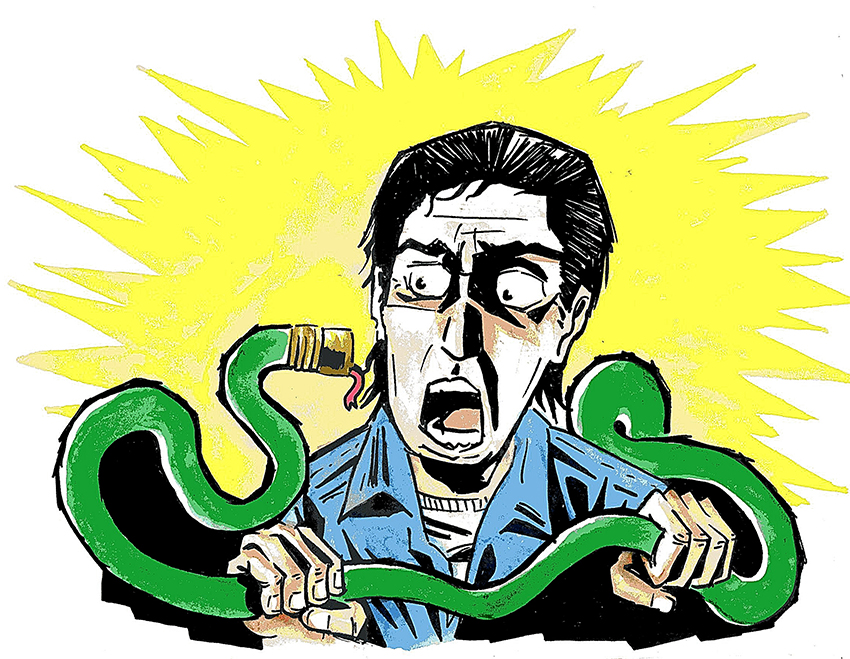Fear caused by a past trauma or bad memory can be increased by stress, a study by UT researchers found.
Joseph Dunsmoor, a UT psychology professor and Dell Medical School psychiatry professor, led the study, published earlier this month in Proceedings of the National Academy of Sciences, in which subjects were given an electrical shock after hearing a tone at a particular frequency in order to create an association between the tone and the shock.
Once the subject learned the association, the researchers tested physiological signs of fear when exposed to various tones both the same day and 24 hours later. Among those tested 24 hours later, some subjects first placed their arms in ice water to raise levels of cortisol, a stress hormone.
They found that, while both groups tested the next day reacted to similar tones other than the one used in the conditioning, the group with raised stress levels reacted fearfully to a wider range of similar tones.
Dunsmoor said this is caused by fear generalization, or fearing things that resemble what caused the original trauma but are not actually dangerous.
“The idea is that, if you have an old fear memory, say from some traumatic event or just something threatening that happened to you in the past, over time that memory becomes a little bit less precise,” he said. “But when that’s coupled with some stress in the future, then you’re more likely to generalize that fear.”
McGill University psychology professor Ross Otto, a co-author of the paper who earned his Ph.D. at UT, said that it takes time after a traumatic event for fear generalization to occur.
“You need to have time for the memory of the original fear-provoking stimulus to settle,” he said. “You’re not going to see that kind of generalization immediately after learning about fear-evoking stimuli.”
Dunsmoor and Otto said examples of fear generalization are phobias and post-traumatic stress disorder.
“If you had some kind of traumatic experience with snakes, and then you see a garden hose, you might overgeneralize because those are actually similar-looking things,” Otto said. “(You might) have an anxiety-like response to the garden hose, which is a harmless object. The idea is that being under stress exacerbates this overgeneralization.”
Right now, the most common treatment for anxiety disorders such as PTSD and phobias is exposure therapy, in which a patient is repeatedly exposed to cues that trigger fear but experience no negative outcome so that they unlearn the connection, Dunsmoor said.
Since the situation during exposure therapy is not the same as in the real world, the goal of exposure therapy is to use the same idea of generalization to unlearn fear of a broader range of situations, he added.
This study focused on measuring physiological responses through skin conductance, but the next step is to look at activity in the brain through functional MRI, Dunsmoor said.
Michael Drew, a UT neuroscience professor not involved in the study, said the interesting thing about this paper is that it starts to explore the reasons why fears become overgeneralized, which is important to understanding anxiety disorders.
“One of the big questions with respect to anxiety disorders is why some fears or aversive memories are overgeneralized,” Drew said. “Understanding that kind of thing is a precondition for finding ways to treat maladaptive fear and anxiety. I think (this work) is a step in the right direction.”















